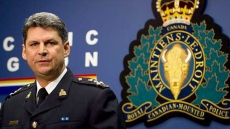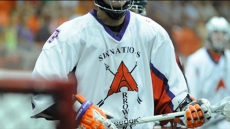NATO leaders began their summit by discussing what feels like yesterday's war.
With eastern Ukraine burning and Islamic extremists rampaging across Syria and northern Iraq, western military allies will turn their attention Thursday to the final withdrawal of combat forces from Afghanistan, slated for the end of the year.
"We have done what we pledged to do," NATO General Anders Fogh Rasmussen said in his opening remarks. "We have dealt a blow against international terrorism in Afghanistan. We have built up capable Afghan forces."
In fact, NATO's original mandate with its International Security Assistance Force was to extend the security writ of the fledgling Afghan government beyond the confines of Kabul.
The mission evolved over time, as a resurgent Taliban fought to retake the south and east of the country. Some critics argue that Afghanistan is a more dangerous place today despite a surge of tens of thousands of troops over the years.
A series of recent international studies have shown that violence is rising in the country, not falling as it did in Iraq following a surge of troops there.
Canada had 158 soldiers killed in Afghanistan.
Originally, the session on Afghanistan at the Wales Summit had the makings of a perfunctory celebration to mark the end of over a decade of involvement in the beleaguered nation and to chart a course for the future.
But that was before last spring's Afghan presidential election turned into a bitter stand-off that threatens to plunge the country back into civil war.
There was no mention of the deadlock in Rasmussen's comments, other than a reminder to the Afghans that they "have an historic opportunity to develop their own country and decide their own future."
A U.S.-brokered deal that would have seen presidential contenders Abdullah Abdullah, a former foreign minister, and Ashraf Ghani, a former finance minister, share power was on shaky ground this week.
Both have threatened to quit the international process meant to weed out fraudulent votes that was convened in the aftermath of the run-off presidential election in June.
"There will be unrest in the country," said Nipa Banerjee, Canada's former head of development in Afghanistan. "The audit process needs a reform and talks should continue in the interest of Afghan civilians."
Banerjee, who was in Kabul during the spring election and subsequent run-off vote, said the recount process to weed out fraudulent votes has been ill-defined and murky.
"The necessary measures for transparency were never taken," said Banerjee, who now teaches at the University of Ottawa.
The election — billed as the first peaceful transition of power in Afghanistan's history — was supposed to be a crowning achievement for NATO, the event it had been fighting for since committing to the security mission.
Hamid Karzai, who remains as president for the moment, has refused to sign a bilateral security agreement with the U.S., which was expected to pave the way to keep a residual force in the country.
"Afghanistan still needs international support and NATO stands ready to play its part," Rasmussen said.
He noted that alliance is prepared to open a new mission to continue training Afghan forces once the bilateral security deal is signed with the U.S.
While NATO has helped train a large security force, including soldiers and police, the Afghans lack critical support systems, such as helicopters, surveillance drones and close air support.
Banerjee said she is worried the alliance will not follow through on its pledge — made at the last summit in Chicago — to properly fund those security forces.
Cash-strapped western nations, facing new crises in the Middle East and eastern Europe, will be hard-pressed to raise the minimum $4.1-billion required to pay and equip the Afghans, she said.
Afghanistan's defence minister will attend the NATO meeting, not Karzai.
The Afghan president, whose relationship with the west has grown distant and bitter, was in Kandahar this week to dedicate a mosque originally started by Taliban leader Mullah Omar. The building sat half completed for over a decade until Karzai's government recently poured US $5 million into its completion.





